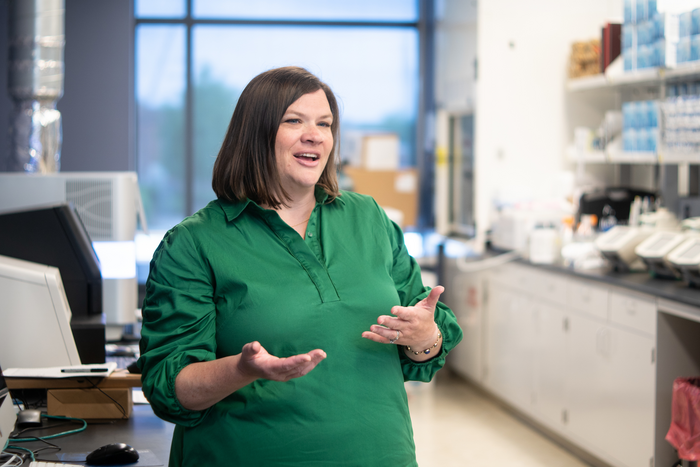WINSTON-SALEM, N.C. – May 22, 2023 – It’s well-known that people with Type 2 diabetes are at an increased risk of developing Alzheimer’s disease, but the reason why isn’t fully understood and is an area of current research.

Credit: Wake Forest University School of Medicine
WINSTON-SALEM, N.C. – May 22, 2023 – It’s well-known that people with Type 2 diabetes are at an increased risk of developing Alzheimer’s disease, but the reason why isn’t fully understood and is an area of current research.
Now, scientists at Wake Forest University School of Medicine have uncovered a novel mechanism that shows increased sugar intake and elevations in blood glucose are sufficient to cause amyloid plaque buildup in the brain, which increases the risk of Alzheimer’s disease. Amyloid plaque is made up of toxic proteins in the brain.
The study findings appear online in JCI Insight.
“We wanted a better understanding of the metabolic changes in diabetes that puts the brain at risk for Alzheimer’s disease or accelerates the pathology already forming in the brain of individuals who will go on to an Alzheimer’s disease diagnosis,” said Shannon Macauley, Ph.D., associate professor of physiology and pharmacology at Wake Forest University School of Medicine and principal investigator of the study.
Using a mouse model, the research team demonstrated that more amyloid plaques form when sugar water is given instead of regular drinking water. They also found that elevations in blood sugar increase the production of amyloid-beta in the brain.
“This finding is significant because it demonstrates that consuming too much sugar is enough to cause amyloid plaque proliferation and increase the risk of Alzheimer’s disease,” Macauley said.
To better understand the molecular drivers of this phenomenon, the research team identified a metabolic sensor on neurons that link changes in metabolism with neuronal firing and amyloid-beta production. The sensors are known as adenosine triphosphate (ATP)-sensitive potassium channels or KATP channels. ATP is an energy source that all living cells need to survive. These channels sense how much energy is available for healthy function. Disrupting these sensors changes how the brain works normally.
“Using genetic techniques in mice, we removed these sensors from the brain and showed that elevation in blood sugar no longer increased amyloid-beta levels or amyloid plaque formation,” Macauley said.
Next, researchers explored the expression of these metabolic sensors in the human Alzheimer’s disease brain and again found that the expression of these channels changes with an Alzheimer’s disease diagnosis.
According to Macauley, the study suggests that these metabolic sensors may play a role in the development of Alzheimer’s disease and could ultimately lead to new treatments.
“What’s most notable is that pharmacological manipulation of these KATP channels may hold a therapeutic benefit in reducing amyloid-beta pathology for diabetic and prediabetic patients,” said Macauley.
Journal
JCI Insight
DOI
10.1172/jci.insight.162454
Subject of Research
Animals
Article Title
KATP channels are necessary for glucose-dependent increases in amyloid-β and Alzheimer’s disease–related pathology
Article Publication Date
22-May-2023




